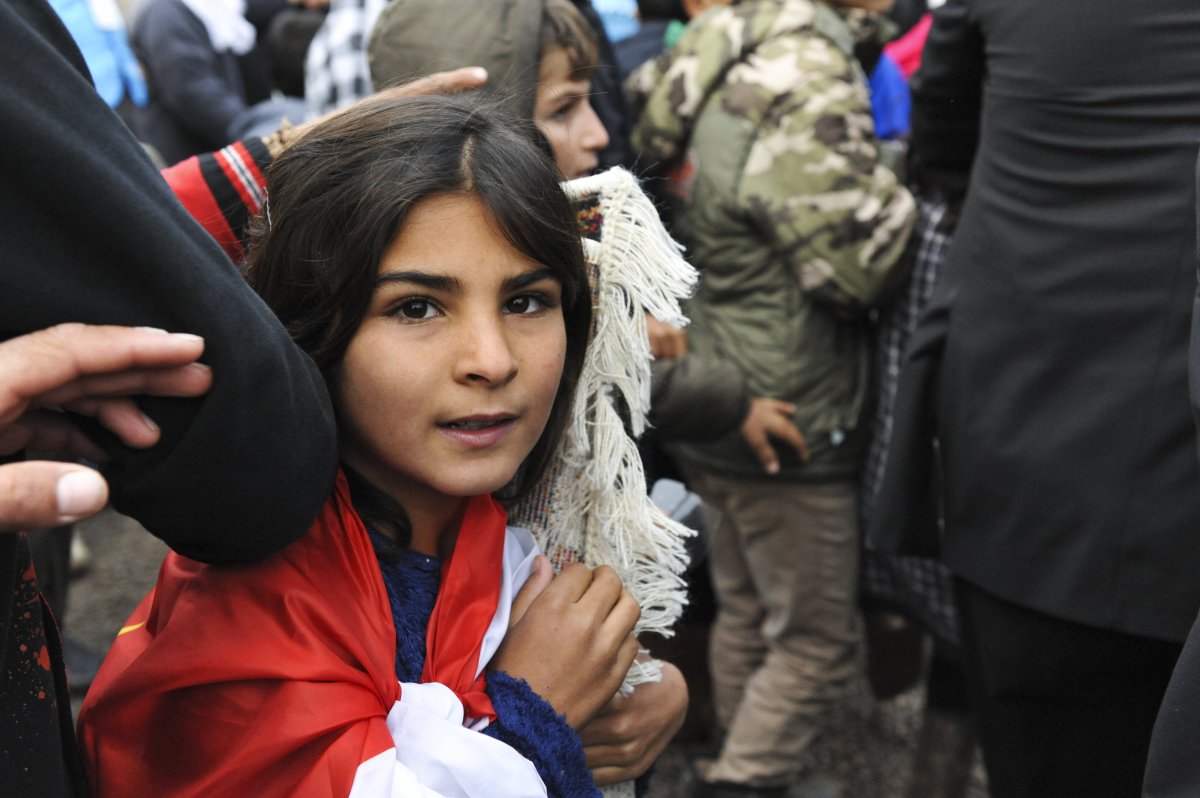States should also share relevant information and documentation and amend national laws to enable any necessary cooperation with the team
September 6, 2018

Source: Human Rights Watch
UN member states should fully fund and cooperate with a new UN team to gather and preserve evidence of serious crimes in Syria for future prosecutions, Human Rights Watch said today. On April 18, 2018, the head of the new team, Catherine Marchi-Uhel, will brief the General Assembly for the first time.
“With new atrocities every day and the Security Council in deadlock, the General Assembly has an urgent responsibility to champion justice for crimes in Syria,” said Balkees Jarrah, senior international justice counsel at Human Rights Watch. “UN member states should support credible investigations into abuses in Syria to make clear that there will be a price for the atrocities there.”
The General Assembly created the team, formally the International, Impartial and Independent Mechanism (IIIM), in an unprecedented December 2016 resolution in response to a stalemate on Syria at the UN Security Council, where Russia had used its veto six times since 2011 to block council action on the Syrian conflict. Since then, Russia has used its veto on six additional occasions to obstruct resolutions related to chemical weapons use in Syria. By establishing the IIIM, the General Assembly demonstrated the positive role it can play on issues when the Security Council is blocked, Human Rights Watch said.
The new team is tasked with gathering, preserving, and analyzing potential evidence for use in courts that may have a mandate over serious crimes in Syria now or in the future. Significantly, it will also prepare files on specific individuals to facilitate criminal proceedings. In its first report to the General Assembly, the IIIM provided an overview of its objectives, progress, and main challenges.
One key hurdle to the team’s work is raising the necessary funds to carry out its mandate. For now, it relies on voluntary contributions from individual countries, including to recruit professional staff and to set up vital security systems. To date, 38 countries around the world and the European Union have pledged support totaling about US$11 million, toward an estimated 2018 budget of US$14 million.
The top funders include the Netherlands, Germany, Denmark, Canada, and Finland, each of which has pledged over $1 million. Countries committed to justice for crimes on all sides of Syria’s conflict should similarly step forward to provide the team with the resources it needs to carry out its important work, Human Rights Watch said.
The reliance on voluntary contributions makes it difficult for the team to plan and organize its work over the long-term, Human Rights Watch said. To address this concern and following its decision to revisit the funding issue, the General Assembly asked the UN secretary-general in December 2017 to include the necessary funding in his next budget proposal. UN member states should reiterate their support to move the funding to the regular UN budget as soon as possible.
Other challenges the team faces include processing the large volume of material available on abuses in Syria, gaining access to Syrian territory for on-site investigations, building bridges with victims, collaborating with other documentation groups, and liaising with national judicial authorities that may be pursuing cases against those accused of serious crimes in Syria.
In the resolution that created the team, the General Assembly said that all countries, the UN system, and civil society should cooperate with it to facilitate its work. On April 3, 28 Syrian organizations concluded an agreement with the team to help guide their cooperation, including transferring data, protecting victims and witnesses, and outreach and communication.
The IIIM is likewise discussing a cooperation agreement with the UN Commission of Inquiry on Syria and is in touch with the UN Secretariat to access material from the now non-operational Organisation for the Prohibition of Chemical Weapons-UN Joint Investigative Mechanism (JIM). States should also share relevant information and documentation that they have about crimes in Syria and amend national laws to enable any necessary cooperation with the team, Human Rights Watch said.
Human Rights Watch and 46 other human rights and humanitarian organizations have appealed to the secretary-general to appoint a team of investigators to determine responsibility for the more than 85 chemical attacks that have taken place in Syria since August 2013. This is necessary since Russia has repeatedly vetoed extending the mandate of the Joint Investigative Mechanism and the Organisation for the Prohibition of Chemical Weapons limits its investigations to determining whether a chemical attack has occurred, but not who was responsible. The results of an investigation aimed at determining responsibility could feed into the ongoing work of the IIIM.
The team, working in partnership with others, will undoubtedly contribute to ongoing and future domestic and international processes for justice, Human Rights Watch said. Criminal justice authorities in several countries, including Sweden, Germany, and France, are already investigating people alleged to have committed serious crimes in Syria, such as torture, war crimes, and crimes against humanity. The new team can support these efforts by sharing its case files, where appropriate, to assist with prosecutions.
“The establishment of the IIIM was an important step forward on justice for grave abuses in Syria after years of unchecked atrocities,” Jarrah said. “The General Assembly’s decision to act in the face of blocked action at the UN Security Council is the beginning of a determined push to bring justice to victims in Syria.”
.
.
